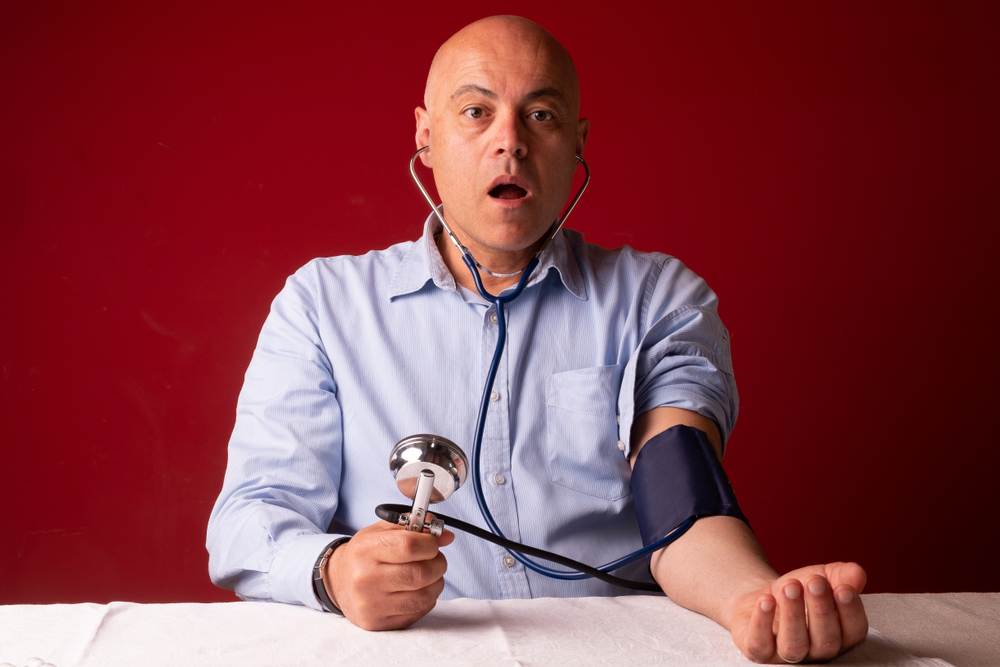When my doctor told me my blood pressure and cholesterol are too high, and I jokingly told him “that’s a problem, because my three favorite food groups are salt, fat and alcohol,” he still rolled his eyes and looked disapproving.
Worse, he told me he wants me to take medicines.

Now it’s one thing to prescribe blood pressure pills and statins for my patients. But taking them myself? It offends my - apparently deluded idea - of being a healthy old fart.
So, in keeping with the modern idea of patient autonomy, I have been trying to decide for myself “do I need blood pressure pills?” And strenuously surfing the Internet to try and prove to my doctor he is being overzealous.
Which of course puts my blood pressure up.
Moving the Goal Posts
You would think deciding if someone’s blood pressure or cholesterol was too high, would be a cut and dried, objective, decision. But you’d be wrong.
It used to be a blood pressure of 140/90 was acceptable (some said even up to 150/90 for people over 60). But in 2017 the American Heart Association and the American College of Cardiology revised their guidelines. They now say a blood pressure of 120/80 is considered normal, and above 130/80 needs treating.
The new guidelines mean about half of all Americans are considered to have high blood pressure and up to 79 percent of men over age 55.
Not everyone thinks the AHA and the ACC have got it right. There are claims of overdiagnosis. The American Academy of Family Physicians – who tend to take a more holistic view – has not adopted them, for example, saying there may be harm from tighter control, among other objections. And many other countries have not followed suit.
Then with blood lipids, there’s debate about what fraction indicate you are at risk of atherosclerosis blocking your arteries. Is it the level of “bad” LDL? Of “good” HDL? The triglycerides? The non-HDL cholesterol? The ratio of total cholesterol to HDL? The ratio of triglycerides to HDL? The particle size?
The purpose of controlling blood pressure and high cholesterol is to reduce the risk of heart attack or stroke primarily - though there are many more, slightly less dramatic complications.
Your risk of any of these is dependent on many factors other than just your blood pressure and cholesterol level. Things like age, sex, smoking history, comorbidities like diabetes, exercise, diet. And genetics plays a large part - though, as many people lament, you can’t choose the family you are born in to.
How Do You Decide?
There’s a guy called Stephen H. Schneider, who is Professor of Biological Sciences at Stanford. He developed rare but highly malignant Mantle Cell lymphoma. He did a lot of research about treatment, and had no reservations about supervising his own care, and badgering his doctors to do what he thought was the right thing – then wrote a book about it, appropriately named The Patient from Hell: How I worked with my doctors to get the best of modern medicine and how you can too.
He concluded there are three questions you need to ask about any medical intervention:
- What’s going to happen if I do this or what’s going to happen if I don’t?
- What is the likelihood if each outcome?
- How do I know? – in other words, how good is the evidence.
Part of deciding what to do about my blood pressure and cholesterol is assessing the health of my cardiovascular system. I went to the website of the American college of Cardiology where the ACVD Risk Estimator tells you lifetime risk of some cardiovascular event.
I have also had EKGs, an echocardiogram, an echo-stress test, my lipid particle size and markers for inflammation and metabolic dysfunction measured (lipoprotein fraction, apolipoproteins, vitamin D, CRP, homocysteine and insulin level).
And there are yet more – fancy and expensive - tests, like nuclear stress test, catheterization, coronary calcium score, all to trying to get a better handle on risk, though most important is just a record of my home blood pressure readings.
Even with all this, deciding “what is the likelihood of each outcome” is incredibly difficult. I couldn’t find the difference in what my absolute risk would be for a systolic blood pressure of 120 versus 140 - the data that presumably prompted the AHA/ACC to make the change.
It’s also noteworthy that it is reported many guidelines have to be modified with time and fully half are overturned within five years.
What I, and my doctor, decide also depends a lot on personal preferences, like how much do I reject the idea of having to take medicines, and how risk averse he and I are. And, how willing I am to give up that that salt, fat and alcohol diet, or make other drastic sacrifices, to live forever?
Or will it just feel like forever?




1 Response